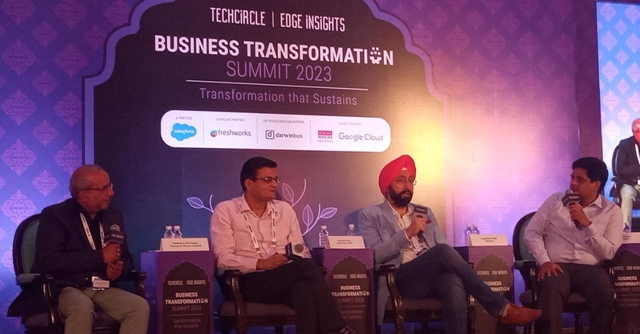
Business Transformation Summit 2023: Cloud, a key driver of business innovation, say experts


Cloud computing has made significant advancements in the past 3-4 years, driven by the increasing demand for digital information and e-commerce. Experts at the Business Transformation Summit 2023, held in Jaipur on October 13-14, believe that cloud architectures will continue to evolve into highly optimised, application-centric environments driven by artificial intelligence (AI) and will serve as a tool for innovation.
According to Kaustubh Dabral, Global CIO of Dabur India Limited, cloud computing has evolved beyond managing and scaling resources and now focuses more on distributing workloads rather than the physical location of hardware racks. Dabur India Limited, a company with a strong legacy, has migrated to the cloud and has seen significant improvements in business resilience, benefiting retailers, partners, employees, and consumers.
The need to improve business latency is driving the adoption of hybrid cloud and multi-cloud approaches. While some applications work well in a public cloud infrastructure, others are better suited for on-premises operations due to latency, governance, or security concerns. Additionally, relying on a single vendor for a solution is not entirely safe, which is why multi-cloud adoption is seen as a wise strategy.
Sandeep K. Dewangan, President & Group CIO of Safexpress Private Limited, states that the increasing reliance on complex cloud environments poses challenges for organisations. AI tools can help automate routine tasks, analyse data, and provide insights into customer behaviour, thereby improving operations.
AI is also contributing to the creation of new services and business models in the cloud. Dabral mentions that more and more cloud services are incorporating AI components as value-adds. This trend is expected to continue as companies seek to drive innovation, agility, and competitiveness with these technologies.
However, security remains a major concern for businesses considering cloud services. Storing data or running applications on infrastructure that is not directly controlled is seen as inherently unsafe, as is the transmission of data via the open internet to and from these services.
Dewangan believes that AI has emerged as an efficient tool in the fight against cyber threats. Real-time threat detection, improved accuracy, and proactive threat mitigation are some of the benefits of using AI for cloud security and threat detection.
Dabral also emphasises the importance of considering security during the planning phase of a cloud journey. Addressing security concerns after the planning phase can lead to significant costs and complexities.
As cloud computing continues to evolve, cloud vendors will also need to transform to keep up. Gagandeep Singh, Regional Sales Director of Salesforce, suggests that cloud providers should build a trusted AI cloud that integrates AI into a comprehensive cloud security plan. Salesforce, for example, is focused on building a trusted AI platform for customer companies, leveraging machine intelligence and the new AI Cloud service.
Dewangan advises CIOs and CTOs to collaborate with the right cloud partners, as cloud adoption requires organisational transformation beyond just data security, privacy, and compliance controls.
Looking ahead, edge computing will become even more prevalent, thanks to the evolution of 5G. Edge devices will become more powerful but will also demand large amounts of real-time data processing and organisation-wide data sharing for analysis and insight.
Dabral notes that cloud migration is not just an IT project but a business transformation project, where cultural aspects play a vital role.
Research firm Gartner predicts that cloud computing will become the pervasive style of computing in the future. By 2027, it will not only be seen as a technology platform but also as a key driver of business innovation.
